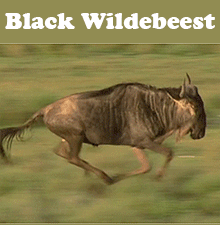Rico Bringa New Hope For An End To Rhino Horn Smuggling
The dog forms part of the EWT’s strategy to quell the rampant rhino poaching and illegal wildlife trade. The rhino poaching crisis has demonstrated that there is no single solution to addressing illegal wildlife trade, which is an increasing global phenomenon, estimated to be the third largest illegal industry worldwide after drugs and human trafficking, and often has its roots in organised, trans-boundary crime. For this reason the EWT is implementing interventions at several stages in the poaching and wildlife trade chain, including the deployment of highly trained sniffer dogs specifically trained to detect wildlife products like rhino horn, at various ports of exit through the country.
Rico will be housed and cared for by ACTS at their canine facility in Kempton Park, with generous sponsorship for the animal also coming from BIDVest and the Hans Hoheisen Charitable Fund. Once he has acclimatised to his new environment Rico is to be introduced to his future handler. While he already understands the principles of searching for and detecting scents he will now be imprinted on the specific scents – particularly rhino horn, ivory and abalone – that he needs to detect before being put to work. As he matures, new scents of other threatened species affected by illegal trade and smuggling will be added to his olfactory repertoire.
The EWT will facilitate the deployment of a further five dogs at various high risk border points of entry and exit during 2012. This will contribute to increasing the detection rate of wildlife contraband in transit and therefore, the risk associated with wildlife crime and rhino poaching specifically. With increased detection comes improved arrest and prosecution rates and hopefully, a reduction in poaching through deterring individuals involved in organised crime.
Curtesy of Endangered Wildlife Trust
Quick Contact
Pieter Goosen
Newsletter Signup
Subscribe to our mailing list.Contact Us
Pieter Goosen
Specials


